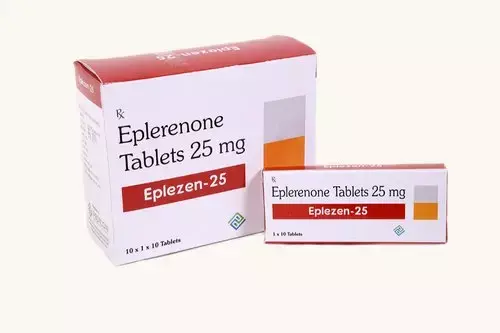- Home
- Medical news & Guidelines
- Anesthesiology
- Cardiology and CTVS
- Critical Care
- Dentistry
- Dermatology
- Diabetes and Endocrinology
- ENT
- Gastroenterology
- Medicine
- Nephrology
- Neurology
- Obstretics-Gynaecology
- Oncology
- Ophthalmology
- Orthopaedics
- Pediatrics-Neonatology
- Psychiatry
- Pulmonology
- Radiology
- Surgery
- Urology
- Laboratory Medicine
- Diet
- Nursing
- Paramedical
- Physiotherapy
- Health news
- Fact Check
- Bone Health Fact Check
- Brain Health Fact Check
- Cancer Related Fact Check
- Child Care Fact Check
- Dental and oral health fact check
- Diabetes and metabolic health fact check
- Diet and Nutrition Fact Check
- Eye and ENT Care Fact Check
- Fitness fact check
- Gut health fact check
- Heart health fact check
- Kidney health fact check
- Medical education fact check
- Men's health fact check
- Respiratory fact check
- Skin and hair care fact check
- Vaccine and Immunization fact check
- Women's health fact check
- AYUSH
- State News
- Andaman and Nicobar Islands
- Andhra Pradesh
- Arunachal Pradesh
- Assam
- Bihar
- Chandigarh
- Chattisgarh
- Dadra and Nagar Haveli
- Daman and Diu
- Delhi
- Goa
- Gujarat
- Haryana
- Himachal Pradesh
- Jammu & Kashmir
- Jharkhand
- Karnataka
- Kerala
- Ladakh
- Lakshadweep
- Madhya Pradesh
- Maharashtra
- Manipur
- Meghalaya
- Mizoram
- Nagaland
- Odisha
- Puducherry
- Punjab
- Rajasthan
- Sikkim
- Tamil Nadu
- Telangana
- Tripura
- Uttar Pradesh
- Uttrakhand
- West Bengal
- Medical Education
- Industry
Eplerenone reduces urinary Albumin creatinine ratio in diabetics at high risk of CVD: Study

Eplerenone improves Albumin Excretion in type 2 diabetes (T2D) With Acceptable Safety, suggests a study published in the Diabetes and Metabolism.
As mineralocorticoid receptor antagonists (MRAs) may possess renoprotective effects in type 2 diabetes (T2D), it was decided to investigate the impact of high-dose MRA on prespecified secondary endpoints—namely, change in urinary albumin–creatinine ratio (UACR) and 24-h ambulatory blood pressure—in the MIRAD trial.
This was a double-blind clinical trial in which type 2 diabetes (T2D) patients at high risk of or with established cardiovascular disease (CVD) were randomized to either high-dose (100–200 mg) eplerenone or a dose-matched placebo as an add-on to background antihypertensive treatment for 26 weeks. Safety was evaluated by the incidence of hyperkalemia and kidney-related adverse events.
The results of the study are as follows:
- A total of 140 patients were enrolled (70 in each group).
- Baseline urinary albumin–creatinine ratio (UACR) was 17 mg/g; this decreased by 34% in the eplerenone group compared with the placebo group at week 26.
- There was no significant decrease in 24-h systolic blood pressure (SBP) due to treatment.
- However, the observed change in 24-h SBP correlated with the relative change in urinary albumin–creatinine ratio (UACR) in the eplerenone group.
- Mean baseline (± SD) estimated glomerular filtration rate (eGFR) was 85 (± 18.6) mL/min/1.73 m2, and 12 (± 9%) had an eGFR of 41–59 mL/min/1.73 m2.
- No significant differences in the incidence of mild hyperkalaemia and no severe hyperkalaemia were observed.
Thus, the researchers concluded that the addition of high-dose eplerenone to type 2 diabetes (T2D) patients at high risk of cardiovascular disease can markedly reduce UACR with an acceptable safety profile.
Reference:
A study titled, "Effect of high-dose mineralocorticoid receptor antagonist eplerenone on urinary albumin excretion in patients with type 2 diabetes and high cardiovascular risk: Data from the MIRAD trial" by Niels H.Brandt-Jacobsen published in the Diabetes and Metabolism.
https://doi.org/10.1016/j.diabet.2020.08.005
Dr. Shravani Dali has completed her BDS from Pravara institute of medical sciences, loni. Following which she extensively worked in the healthcare sector for 2+ years. She has been actively involved in writing blogs in field of health and wellness. Currently she is pursuing her Masters of public health-health administration from Tata institute of social sciences. She can be contacted at editorial@medicaldialogues.in.
Dr Kamal Kant Kohli-MBBS, DTCD- a chest specialist with more than 30 years of practice and a flair for writing clinical articles, Dr Kamal Kant Kohli joined Medical Dialogues as a Chief Editor of Medical News. Besides writing articles, as an editor, he proofreads and verifies all the medical content published on Medical Dialogues including those coming from journals, studies,medical conferences,guidelines etc. Email: drkohli@medicaldialogues.in. Contact no. 011-43720751


